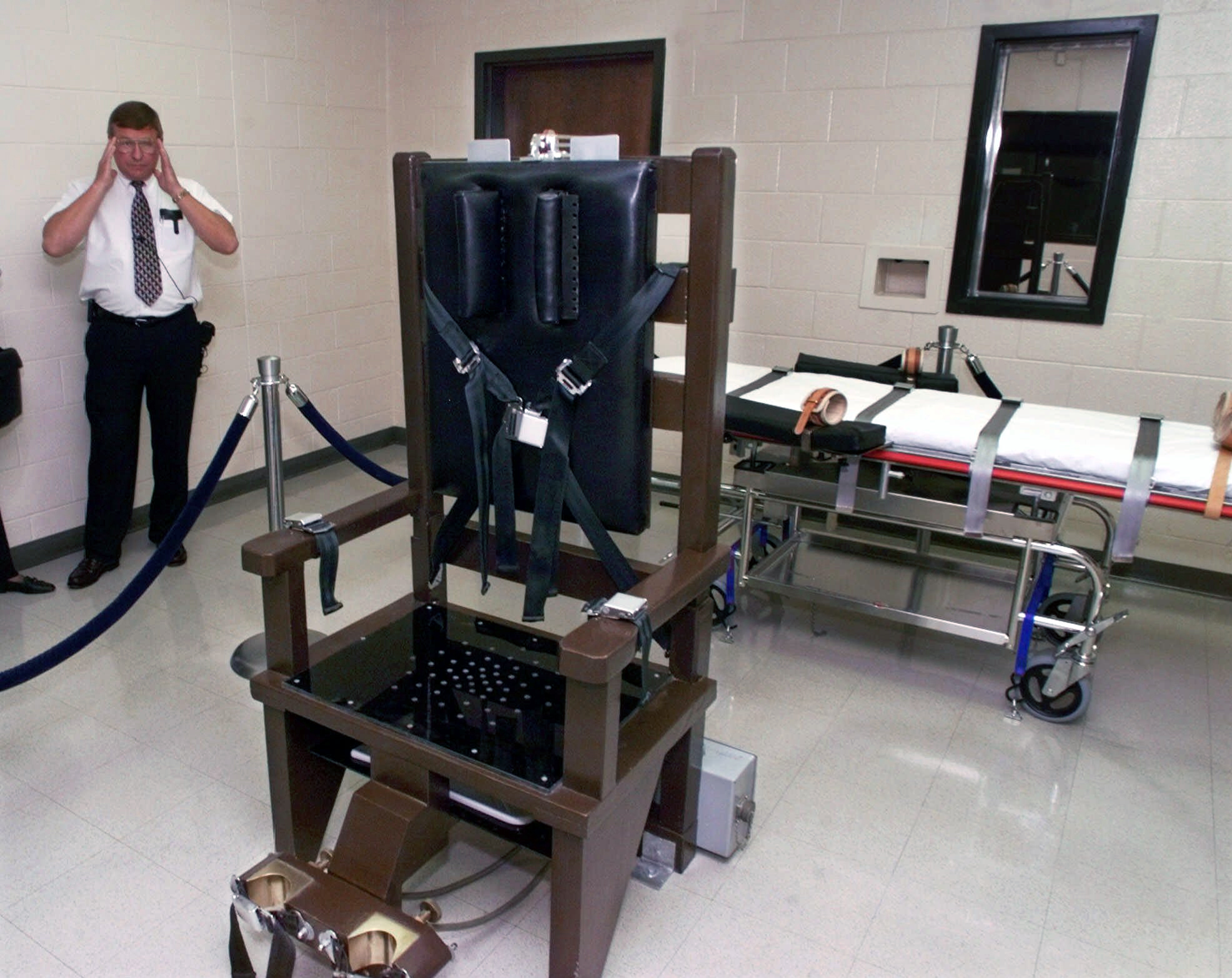NASHVILLE - A Tennessee judge has upheld the state's lethal injection process for executing inmates.
 In this Oct. 13, 1999 file photo, Ricky Bell, then warden at Riverbend Maximum Security Institution in Nashville, Tenn., gives a tour of the prison's execution chamber. Republican Gov. Bill Haslam signed a bill into law Thursday, May 22, 2014, allowing the state to electrocute death row inmates in the event prisons are unable to obtain lethal injection drugs, which have become more and more scarce following a European-led boycott of drug sales for executions. (AP Photo/Mark Humphrey, File)
In this Oct. 13, 1999 file photo, Ricky Bell, then warden at Riverbend Maximum Security Institution in Nashville, Tenn., gives a tour of the prison's execution chamber. Republican Gov. Bill Haslam signed a bill into law Thursday, May 22, 2014, allowing the state to electrocute death row inmates in the event prisons are unable to obtain lethal injection drugs, which have become more and more scarce following a European-led boycott of drug sales for executions. (AP Photo/Mark Humphrey, File)
Davidson County Chancery Judge Claudia Bonnyman said Wednesday from the bench that the plaintiffs, 33 death row inmates, didn't prove that the one-drug method led to a painful and lingering death.
She also said the plaintiffs didn't show during a lengthy trial that there have been problems in states where the method has been used.
There was no immediate comment from attorneys for either side.
Tennessee has not executed an inmate for more than five years because of legal challenges and problems obtaining lethal injection drugs.
Lawmakers have considered proposals to move from a three-drug lethal injection method to a one-drug method and to reinstate the electric chair as a backup. Both changes brought challenges.